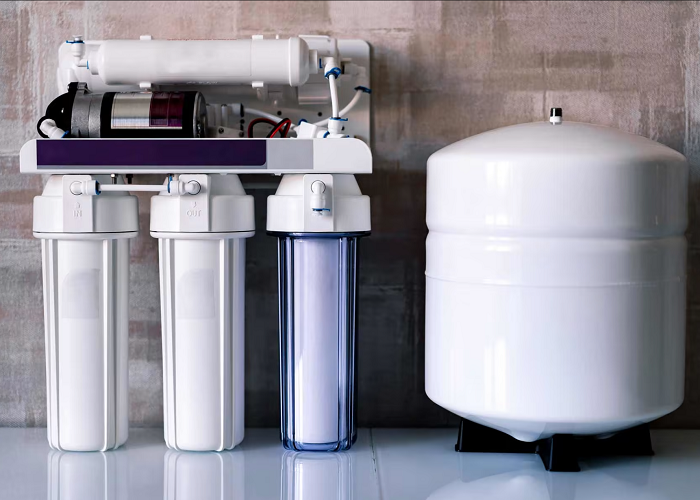Access to clean and safe water is essential for maintaining health and well-being. With growing concerns about water quality, many homeowners are considering whole-house water filter systems to ensure every drop from their taps is contaminant-free. While these systems offer numerous benefits, it’s essential to delve into the economics to understand their costs, benefits, and long-term savings. Exploring the economics of complete home filtration systems can guide homeowners in making informed decisions about their water filtration needs.
Initial Investment: Understanding Upfront Costs
When contemplating a whole-house filter system, the initial investment is crucial. These systems are typically installed at the entry point, where the main water line enters your home. The initial costs include the price of the system itself, installation charges, and any necessary modifications to your plumbing setup. While the upfront expenses seem significant, they invest in long-term water quality and health.
Comparing Filter Replacement Costs
One of the ongoing costs associated with whole-house filter systems is filter replacement. Different systems use various types of filters designed to remove specific contaminants. The frequency of filter replacement varies based on factors such as the system’s capacity and the water quality in your area. Homeowners should research the replacement costs of filters and assess how often they need to be changed. While some systems might have pricier filters, their longevity and effectiveness in providing clean water outweigh the initial expense.
Energy and Maintenance Expenses
Beyond the filters, homeowners should consider the energy consumption and maintenance requirements of whole-house filter systems. Some systems require electricity, which could lead to increased utility bills. Additionally, periodic maintenance, such as cleaning and servicing the system, should be factored into the overall cost. While these ongoing expenses might not be as prominent as the initial investment, they contribute to the system’s long-term economics.
Health Benefits and Medical Savings
One less quantifiable yet invaluable aspect of whole-house filter systems is their potential health benefits. By eliminating contaminants and impurities from your water source, these systems provide clean water for drinking, cooking, bathing, and even washing clothes. Clean water can contribute to better skin and hair health, reduced exposure to harmful substances, and a decreased likelihood of waterborne illnesses. While these health benefits might not have a direct monetary value, they can lead to potential medical savings and an improved quality of life.
Protecting Appliances and Plumbing
Another economic consideration is the impact of water quality on your appliances and plumbing. Hard water, for instance, can lead to mineral buildup in pipes, water heaters, and other appliances, reducing their efficiency and lifespan. Whole-house filter systems can help prevent such issues by addressing the water’s mineral content. By safeguarding your appliances and plumbing, these systems can lead to savings on repairs and replacements in the long run.
Resale Value and Home Investment
Installing a whole-house filter system can also contribute to the resale value of your home. A water filtration system can appeal to prospective buyers in an increasingly health-conscious and environmentally aware society. It showcases your dedication to offering secure and clean water, which can differentiate your home from others on the market. While it might not result in an immediate monetary return, it could contribute to the overall value of your property.
Environmental Considerations
The economics of whole-house filter systems extend beyond individual households. By investing in cleaner water, homeowners indirectly contribute to the environment by reducing the consumption of bottled water and the associated plastic waste. This environmental aspect adds an intangible yet meaningful layer to the economic evaluation of these systems.
Conclusion: A Holistic Perspective
When assessing the economics of complete home filtration systems, adopting a holistic perspective that considers the immediate costs and the long-term benefits is essential. Clean water is an investment in health, well-being, and the longevity of your home’s infrastructure. Ultimately, the economics of a whole house filter system extend far beyond monetary figures, influencing health, comfort, and the overall quality of life.









